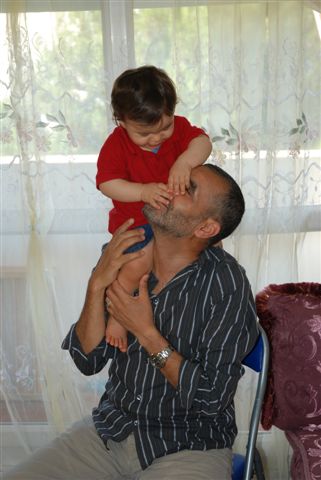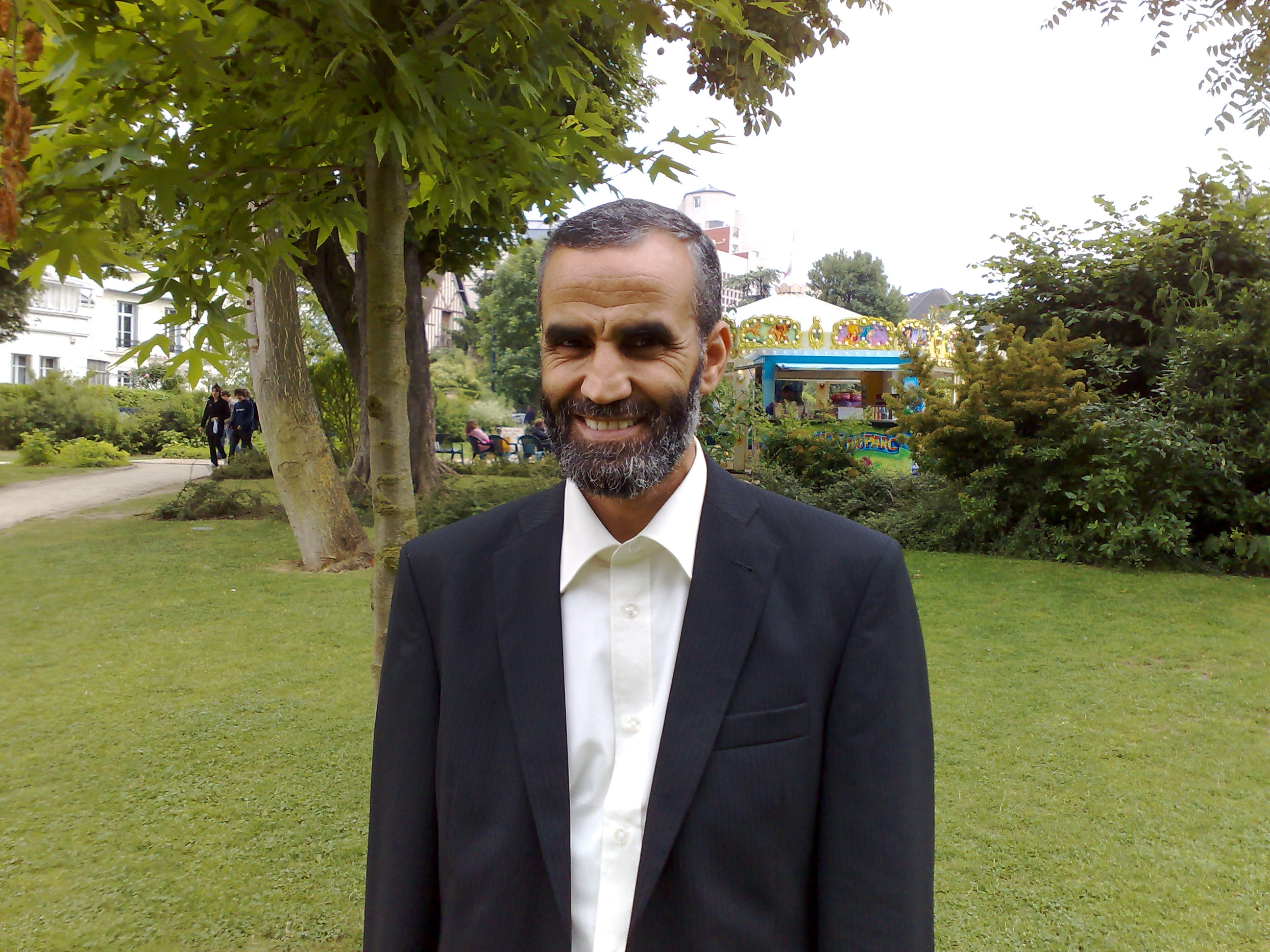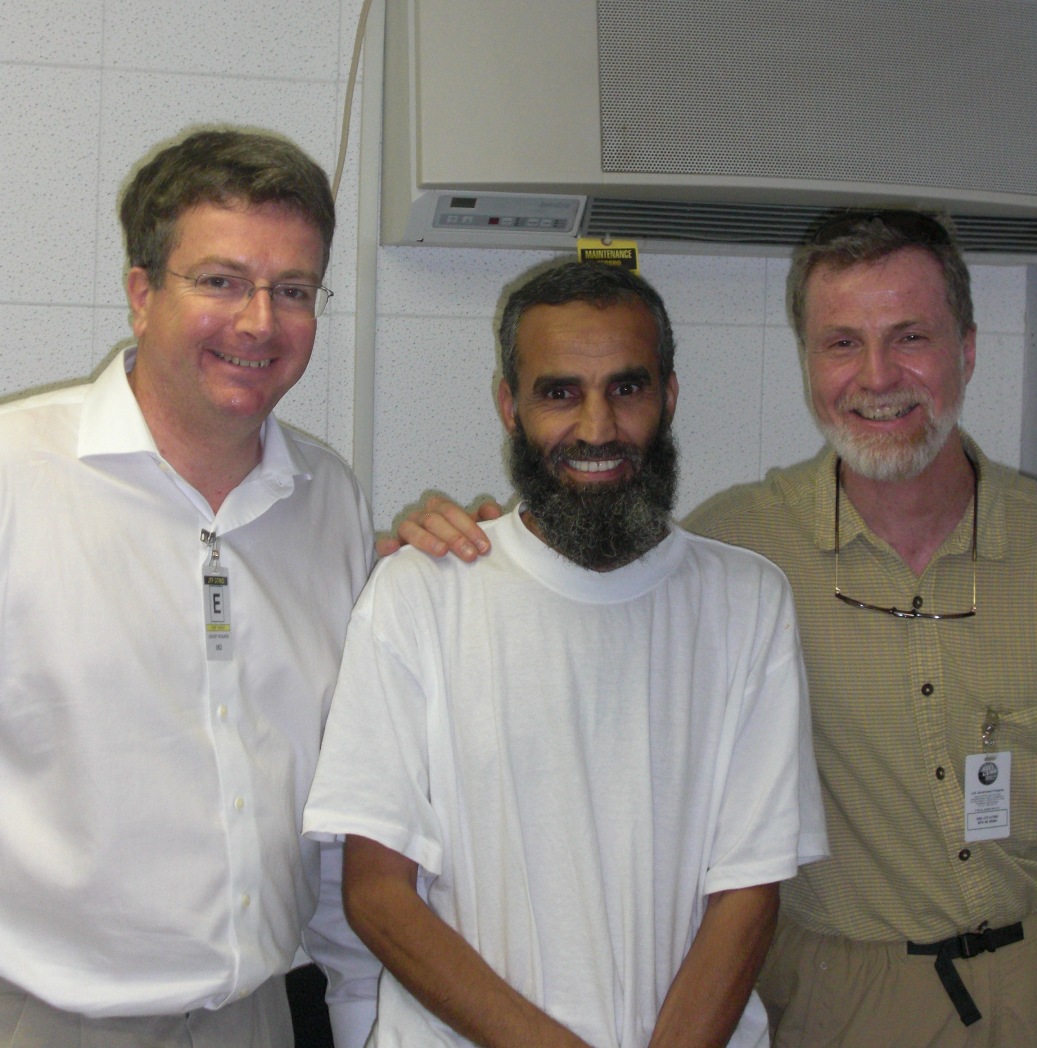Injustice at Guantánamo: Past and Present


Image, left: Lakhdar and Yusuf (born 8/2010) – September 2011
This Wednesday marks 10 years since the prison at Guantánamo Bay opened. Today in The New York Times, Lakhdar Boumediene reflects on that anniversary and tells the harrowing tale of the seven and a half years he spent imprisoned in Guantánamo Bay. Mr. Boumediene always maintained his innocence, fought his case all the way to the Supreme Court in a case that bears his name, and ultimately won his freedom before a federal court in Washington. Today, he lives in France with his wife and three children.
Mr. Boumediene’s personal experience goes to the heart of what is wrong with Guantánamo. Originally from Algeria, he became a Bosnian citizen and worked there for the Red Crescent — the Muslim equivalent of the Red Cross. In October 2001, he was taken away from his wife and two daughters, arrested and falsely accused of being an al Qaeda operative. After three months of investigation, Bosnia’s highest court found there was no evidence against him, but instead of tasting freedom, he was kidnapped by the United States government, trussed up and flown to Guantanamo. There, he was brutally treated, beaten, subjected to extreme temperatures, forced to stay in painful positions for hours at a time, sleep deprived and beaten. His wife and young children were never allowed to visit and their letters were either rejected entirely or heavily censored. Mr. Boumediene went on hunger strike to peacefully protest his incarceration without charge. He was force-fed for two years.

Boumediene in Paris weeks after his release from Guantánamo — Spring 2009
Still, somehow, Mr. Boumediene maintained the strength to fight for his freedom. In his historic 2008 case, Boumediene v. Bush, the Supreme Court ruled that prisoners like him must have a meaningful opportunity to challenge their confinement. Months later, a federal judge ruled that the U.S. had no credible evidence against Mr. Boumediene and ordered him set free. It turns out the government’s entire case relied on a single unnamed informant, whom U.S. Embassy officials in Bosnia had found untrustworthy at the time Mr. Boumediene was originally seized. Yet he remained imprisoned for seven and a half years. He was finally reunited with his family in France in May 2009.
“Some politicians say that people in Guantánamo are terrorists, but I have never been a terrorist. Had I been brought before a court when I was seized, my children’s lives would not have been torn apart, and my family would not have been thrown into poverty. It was only after the Supreme Court ordered the government to defend its actions before a federal judge that I was finally able to clear my name and be with them again….I’m told that my Supreme Court case is now read in law schools. Perhaps one day that will give me satisfaction, but so long as Guantánamo stays open and innocent men remain there, my thoughts will be with those left behind in that place of suffering and injustice.”
While Mr. Boumediene is finally free, over 170 men remain in Guantánamo, stuck in a limbo created by the politics of fear that surround anything to do with terrorism. The majority of Guantanamo prisoners have been unanimously cleared for release by the United States intelligence and military communities, but remain incarcerated, to the cost of over $70 million a year. The reason is politics and failure by all three branches of government to act to bring an end to Guantánamo. It is a lot easier to bang the drum of fear than to sound the call of justice.

Taken the day before release, the only known photo of a prisoner and lawyer at Guantánamo – May 2009
I had the honor of interviewing Mr. Boumediene last week, and our conversation will be available online later this week as a podcast on the ACLU’s website. It is a unique opportunity to hear the words of a man who has actually experienced Guantánamo Bay from the inside, with all its failings and profound ugliness. We ask that you stand today with Mr. Boumediene and call upon the U.S. government to finally end the blight on our reputation — and our security — that is Guantánamo Bay. Join us in asking President Obama to keep his promise to close the prison camp by charging and trying the prisoners who are there, or sending them home.
Learn more about Guantánamo: Sign up for breaking news alerts, follow us on Twitter, and like us on Facebook.



